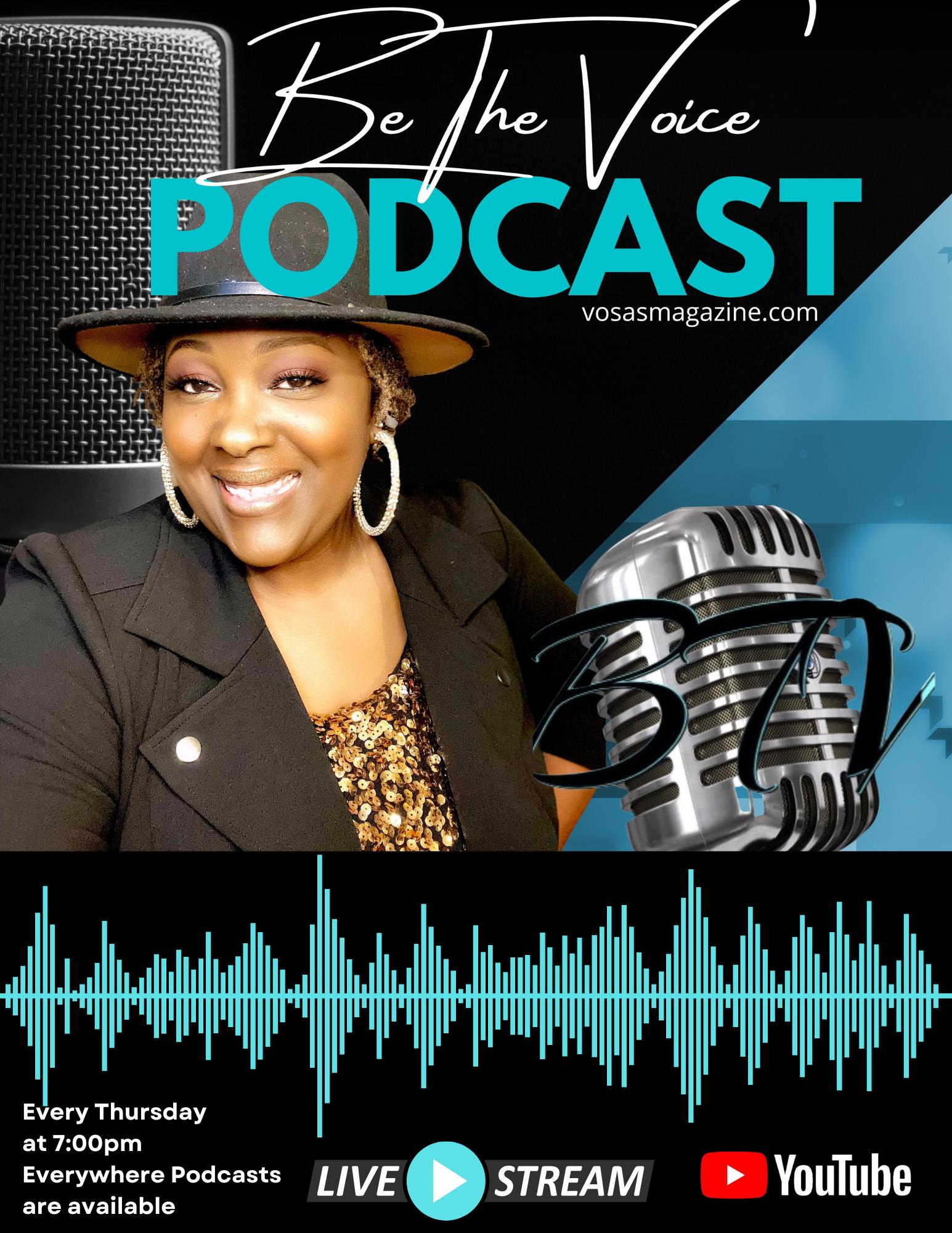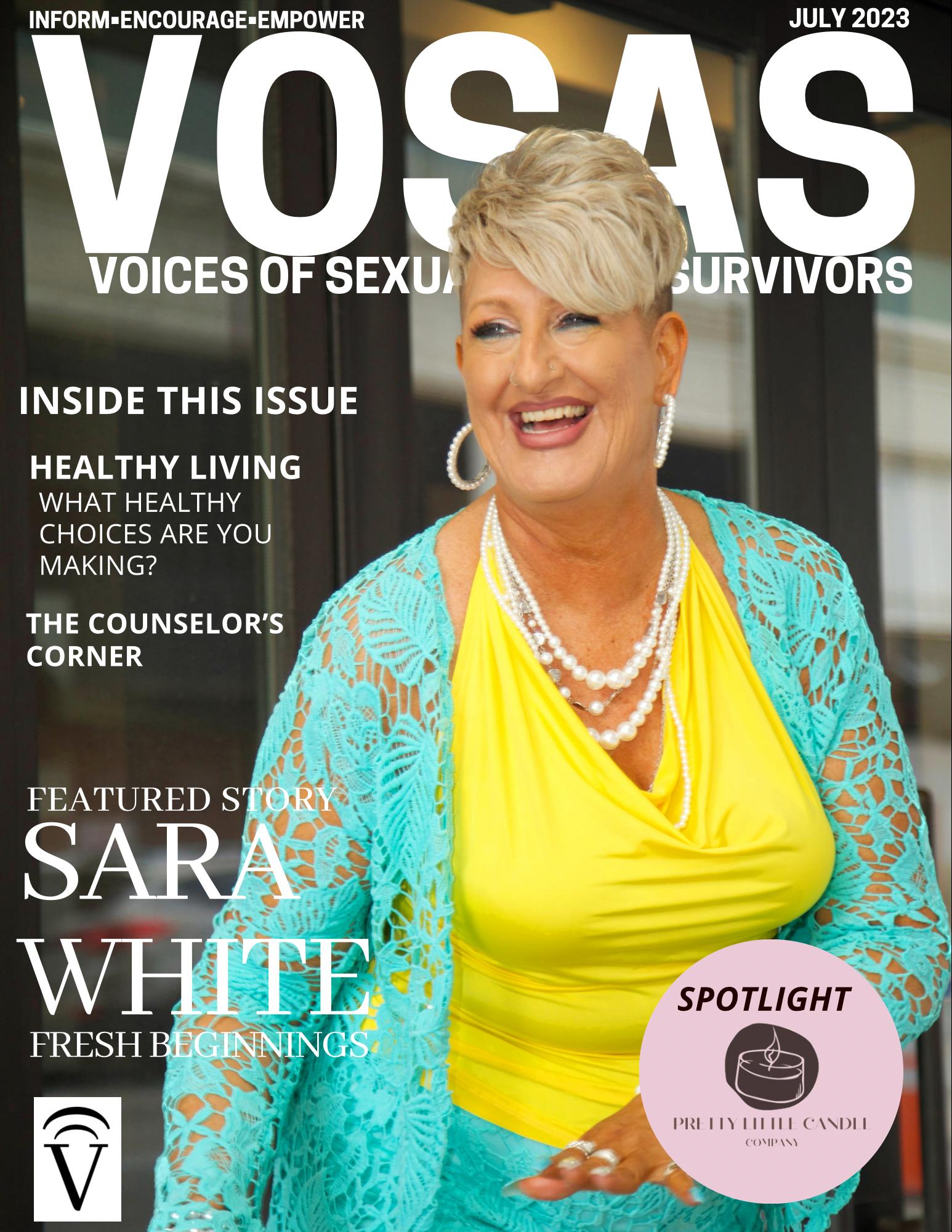


















VOSAS is almost 3 years old and I can’t recall if I actually explained the true purpose of this publication.
If you have followed me any length of time then you know my story. I am a survivor of childhood sexual abuse, and told my truth for the first time 12 years ago. To be very honest, I still sometimes think back and I can’t believe I revealed the secret that was going with me to my grave. But since that moment, I knew helping other survivors was one of my God given assignments.
Throughout the past few years of my advocacy journey, I have heard so many stories from women and men who have overcome the trauma of sexual abuse. During this time, also the Me Too movement came about. What I realized is that although it is difficult to share the truth, survivors were tired of being silent. Although sexual abuse has been taboo in our society for years, there was freedom for those who were making the choice to speak out. Some of those survivors were taking their freedom to the next level and began to seek therapy and support groups. After facilitating support groups myself, I realized that these voices need to be heard because many others will be encouraged by their courage and will begin their own healing journey. This was the reason for the name V.O.S.A.S. (Voices of Sexual Abuse Survivors).
This magazine gives a platform for everyday people who have a voice and want to share it with the world. It’s not to glorify the act of sexual abuse, but to Inform, Encourage, and Empower every reader. This magazine is for everyone. We are changing the narrative.!


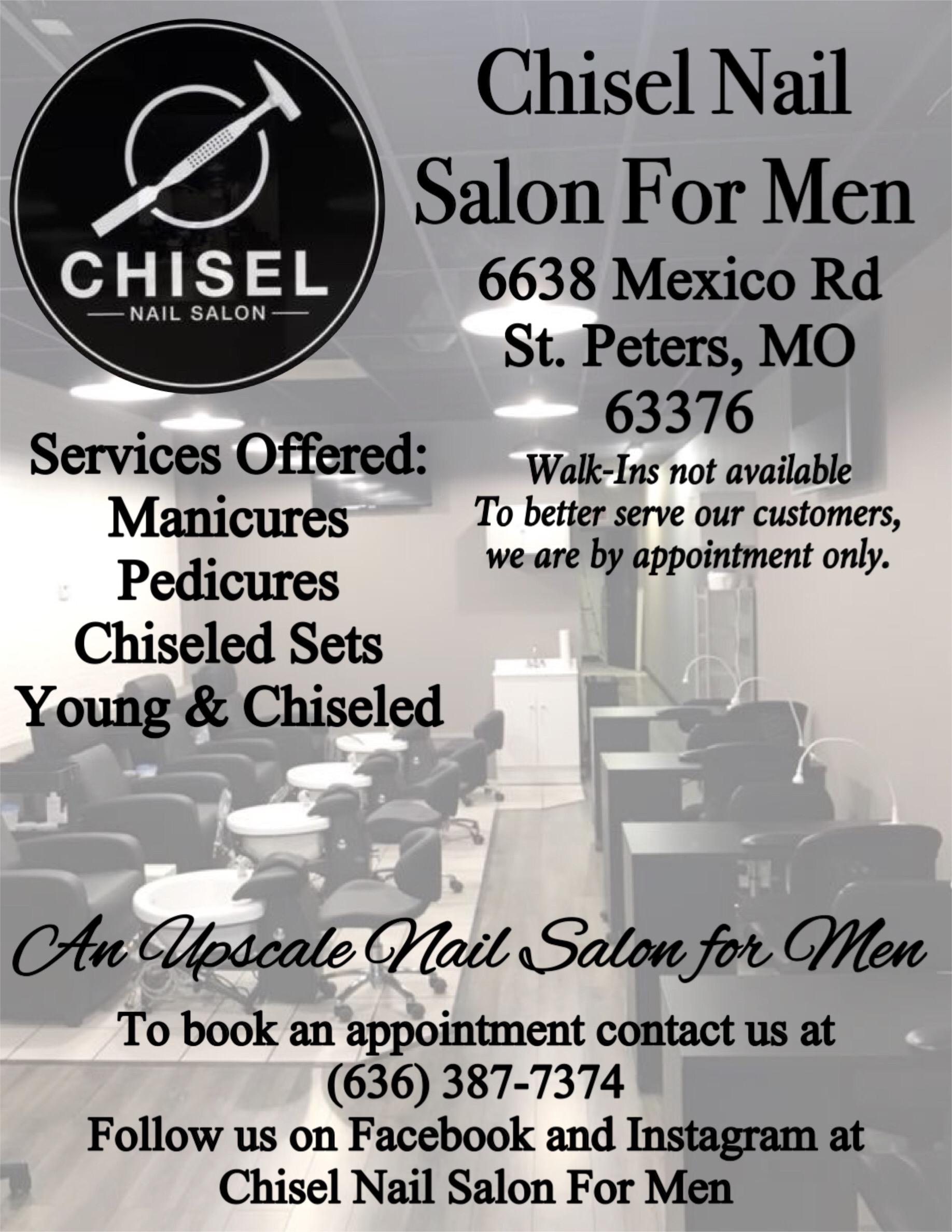
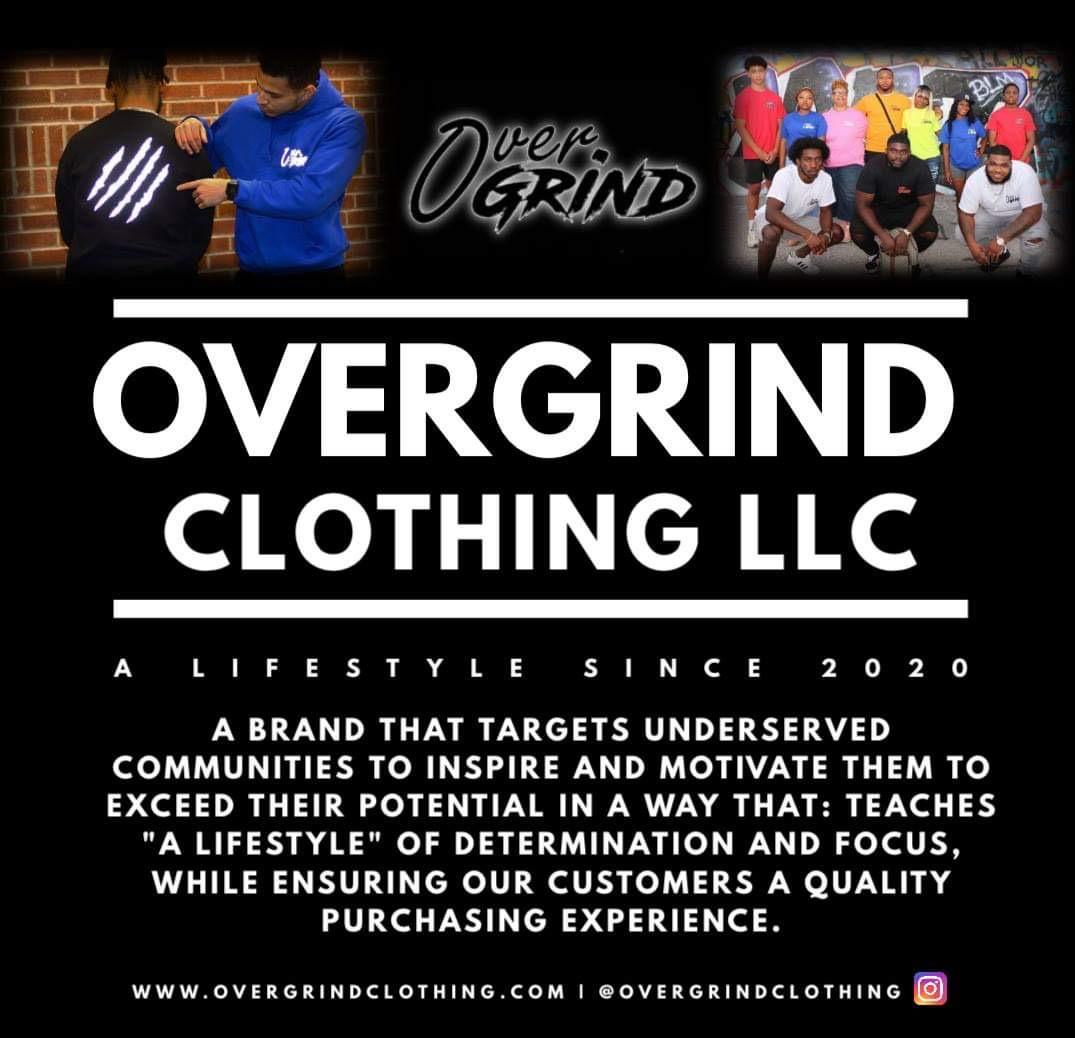
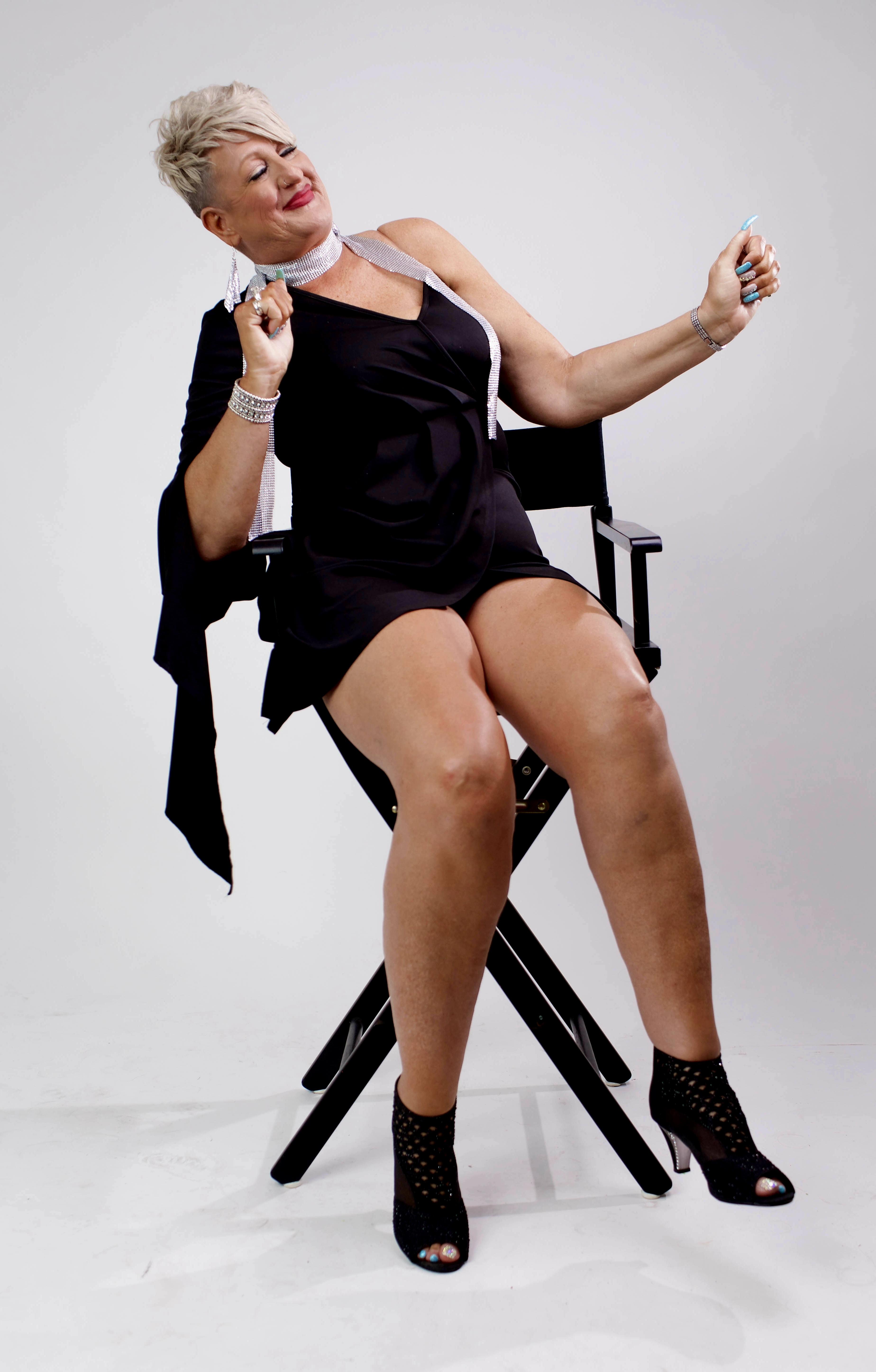

Sara, thank you for your courage to allow us to interview you as our featured story. Sexual abuse has been a taboo cult for survivors to come forward with their truth, understandably. As we begin this interview, please feel free to start by telling us your story. Be as detailed as you would like.
My story has many layers after suffering both complex and chronic trauma as a child, and into my adult life. My first encounter with any type of sexual trauma was when I was seven years old. There was a boy up the street that my mother often let me play with who was about 2 years older than me. It was on a day during summer break from school, while playing with him, when he introduced me to my first moment of sexual violation. His parents would usually allow him to stay home while they were at work and sometimes we would go to his home and grab a snack or sit for a minute to cool off.. This day when we were at his house the conversation became sexual in nature, and I excused myself to go to the bathroom. When I was done, I opened the bathroom door, and he was standing there with a knife. He pushed me back into the bathroom and forced me to take my clothes off so that he could touch me. I remember being absolutely terrified and he told me if I said anything he would say I was lying and then hurt me later on. I ended up never mentioning it again for years. This, along with many other factors such as domestic violence being a regular occurrence, exposure to family members with addictions, violence, neglect, and other forms of abuse, led me to sexual promiscuity and other maladaptive behaviors starting right before I started high school.
By the time the summer after my 8th grade year came, I was acting out in ways that were dangerous and clearly signaling that I needed help. I started drinking and hanging around with local gang members. Eventually, I started being a chronic runaway. This led to several more incidents of sexual trauma and abuse. I was commercially sexually exploited by numerous older men who took advantage of my vulnerabilities. I was drug behind a building and raped by one of the guys that hung around some of the groups I did. There was another incident where I was forced down into a basement and raped by a guy much older than me. This all occurred during the span of being 14 and 15 years old. I was broken and had nobody. Unfortunately, a support system was non-existent for me. And, as we so often do with our teenagers, the obvious need for help and crisis intervention went ignored and I was labeled as a “problem teen” by authorities, my mother, and many that were close to me.
At 16 years old I got into a program that got me off the streets and I went into the next chapter of my life. I had my daughter at the age of 19 and a few years later met my now ex-husband. During our marriage there were oftentimes when he would force me to have sex with him. This is a subject that often goes un-talked about in society, sexual assault within the context of marriage. If I tried to say no it would lead to violence and tirades. I can remember one time when he had been out partying all night and came in to wake me up for sex. I was upset and it was no secret he was having extramarital affairs. I told him no and when he went into one of his tirades I got up and went into another room to lay down in an extra bed. He then came in there and asked me again. I told him no and then he physically kicked me out of the bed and then assaulted me. This happened on more than one occasion. He believed that because I was his wife it was my duty no matter what the circumstances were.
Repeated sexual trauma along with other traumas I experienced led to years of dysfunction, pain, brokenness, and poor choices. Somewhere along the way I managed to make the decision that I no longer wanted that for my life. I gathered what little strength I could manage in order to take the first step of my journey to healing. That was one of the most important and impactful choices I ever made, and I do not regret one moment of the journey I had to walk out to get to the place I am today.
I think it goes back to my decision to take the first step of the journey. Working through one’s trauma takes time. It consists of peeling back layer after layer as one navigates the journey and the different seasons of the journey. I had to acknowledge what I had been through and understand that in order to overcome what I had been through I needed to make choices that weren’t always the easiest. It meant I had to take responsibility for who I wanted to become, what it was going to take to get there, and being okay with letting go of my identity that was rooted in trauma, dysfunction, and all the poor choices I had made because of what I had been through. I had to be willing to do the work it was going to take to walk out the journey, such as therapy and confronting my past.
A lot of times the journey was uncomfortable because it was unfamiliar. I had become functionally dysfunctional. I knew how to maneuver poverty, I knew how to maneuver toxic relationships and situations. I had to make the decision that I was willing to try navigating and living in something new and healthy, even though it was unfamiliar. I also had to decide to have a willing heart and mind to learn what life outside of trauma and dysfunction looked and felt like. Learning that has taken me years to accomplish. Lastly, I had to learn how to be the woman I had become after years of walking out the journey of overcoming my trauma.
Recently I walked into my therapist’s office, sat down, looked at her and proclaimed, “I don’t think I fully know how to be the woman I have worked so hard to become”. I thought I sounded crazy, but she helped me to understand that I wasn’t. She helped bring clarity to what I was feeling by explaining that I was still leading with my redemptive story which is where my power previously was. She explained that it was okay to now exist in the power of the woman I am and lead with that. She stated I was still finding safety in the comfort of the vulnerability of my story which is what I lead with for years to justify who I had become. She let me know I am at a point where justification is no longer needed because I had done the work and now, I could simply just “be”.
As a survivor, what do you feel was the most important benefit of seeking your personal healing journey?
Initially, the most important benefit of seeking out my personal healing journey was me. It was so that I could enjoy being healed and whole. It brought me to a place of wanting to live life to the fullest instead of slowly dying inside from the emotional pain and scarring. However, as I walked out the journey the decision began to affect others around me. To this day, it still benefits others because I use my story to assist individuals struggling with their own trauma. I got my masters in crisis and trauma counseling and I now have a non-profit that assists women who are survivors of human trafficking and commercial sexual exploitation. So, it is hard to pinpoint the most important benefit because there are many.
Telling the truth about sexual abuse can allow survivors to begin to walk in freedom, but at the same time cause issues with family members, or others that may not believe the truth. How important was it for you to have a support system?
Having a support system was critical in my healing journey. However, I learned, understood, and accepted that my support system would be diverse. It may not always be who we think it should be. We may have to engage in new relationships to get the type of support we need at each place within the journey. We might also have to lose some people along the way. One must learn to be okay with this.

What would you say to other survivors that want to speak up, but just not sure how?
If you don’t believe that talking about what you have been through is safe for you with the current people in your life, find an organization that deals specifically with sexual trauma. If you are not ready to talk about it, then don’t. I do advise anyone that the journey to healing requires the decision to talk about the trauma. So, until one talks about it true healing cannot occur.
Self-Care is also a very important as it relates to healing from any trauma. What are some things you do for self-care.
The most important thing I do is see a therapist regularly. Things still come up. I still deal with the issues of life, and I still need to have a safe confidential place to talk. I also carefully monitor my boundaries and self-evaluate as to whether I am adhering to them. I practice self-awareness to make sure I know when I am triggered or I am not okay. The other important part of self-care for me is showing myself grace. Sometimes trauma responses still exist in my life. Sometimes, I still get triggered. Sometimes, I still struggle with self-doubt and being extremely critical of myself. I show myself grace in these moments and let myself know that it is okay to not be okay and how I respond to all this is what matters. Some of the other things I do for self-care is, unapologetically invest in things that are going to make my life easier or feel better about myself. For example, I hired a housekeeper to come in my home and do some of the deeper cleaning once a month. I work a lot and my schedule is full. This helps free up time for me to decompress instead of feeling guilty about needing to dust,etc. I do things that make me happy. Getting my nails done, buying cute outfits, and having girl’s nights. Self-care looks different for everyone, but we all need to practice it.
Although we use the language “survivor” when describing those who are recovering and has overcome the past trauma sexual abuse, we here at VOSAS Magazine believe that we are not made to only survive, but to thrive. Tell us what thriving feels like to you.
I believe that everyone who is still living and breathing is a survivor. Overcoming and thriving is a completely different place to be. When I think of thriving, I think of something or someone full of life. They are growing, working towards becoming a better version of themselves. I feel alive and ready to constantly move to the next level and season of my life. That is what thriving feels like for me. Being free of the emotional and mental anguish that kept me immobile and made me feel like I was dying on the inside.
As I said earlier, I obtained my masters degree in crisis and trauma counseling recently. I use both my education and experience to effectively impact other survivors of sexual trauma and any other types of traumas they may have experienced. Experience is also a good teacher. My experience allows me to truly understand what an individual is going through so that I can meet them right where they are.
I have my anti-human trafficking organization and we have an intensive outreach program that we have been doing for a couple of years. I am working on expanding that program to include a drop-in center where we can centralize trauma informed services and work closer with the women we serve as we work towards transitioning them out of the life of sex trafficking and commercial sexual exploitation into a life of safety and healing.
“…until one talks about it true healing cannot occur. “
~ Sara White
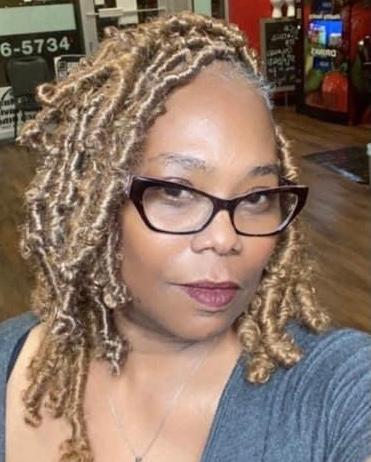
Supervised
by:Jean Moretto, PhD, LPCAndrea completed her Master of Arts degree in Professional Counseling May 2017 from Lindenwood University. Andrea believes that a primary means of change lies in developing a strong therapeutic and collaborative relationship. She utilizes a strengths based approach in working with clients to develop a unique fit to their personal needs and draws from several modalities including, but not limited to, cognitive behavioral therapy and solution based work.
Andrea has worked with clients of all ages and has dealt extensively with depression, anxiety, sexual abuse and behavioral issues. When requested by the client, Andrea finds that seeking God authentically in session results in healing and can lead to life forming changes.
Andrea is a member and also on the board at Moving4ward Ministries, a 501c3 organization created to provide the community of St. Louis and St. Charles counties of Missouri, a place where adult survivors of sexual abuse ages 18 and older, regardless of race, gender, ethnicity, or sexual orientation, can feel safe sharing experiences that has caused lasting effects on professional resources so healing can begin. Andrea is Youth Mental Health First Aid Certified.Andrea is also a member of the International Honor Society of Counseling Professionals, Chi Sigma Iota.

There’s a lot of fear that therapy, especially needing it, will communicate to others that we aren’t “normal.” In other words, a lot of people think that going to therapy means that they’re “crazy”, and they fear that others will think that as well. Why is there this stigma about people going to see a therapist? There isn’t a stigma for going to a medical doctor or to physical therapy so why are people so scared to talk about what goes on in their head? I would like to provide a few statistics as well as some definitions that will hopefully shed some light on the subject of therapy and what people all across the world are experiencing. Forty million adults suffer through an anxiety disorder and 75% of them experience their first episode of anxiety by the age of 22, according to the Anxiety and Depression Association of America. That is a lot. That is a lot of young people suffering in silence who may not be able to talk to someone because they might be labeled as “crazy.” They also may experience older adults telling them that they made it through their own trials without going to therapy so they do not need to go. Unfortunately, this is horrible advice and it is keeping millions from seeking the help they may desperately need. One in five American adults has a mental health condition. Research has shown that these mental health conditions can be treated effectively. While mental health professionals are constantly trying to disprove the stigmas surrounding mental health, more people have acknowledged the value of modern therapy. Insurance companies are now required to cover and treat mental health conditions which means more Americans than ever can access the true benefit of therapy but even if you don’t have medical insurance to cover this type of treatment there are different communities across this country and have places that can help those without medical coverage.
A mental health professional may provide a fresh perspective on an issue. They can help give people a better understanding of their own emotions. Therapists can also teach communication skills to convey those emotions. In essence, therapy can promote a person’s self-esteem, relationships and outlook on life.




Healthy living has been on my mind for quite some time. I will be 50 years old in 2024 and being honest, I have work to do. Growing up I was a super skinny girl and couldn’t eat enough to gain weight. I wasn’t satisfied skinny, and now that I’m older, I’m not satisfied overweight. So what truly is the issue? It’s about choice!
When we think about being healthy, the first thing we consider is our outer appearance and that dreadful scale. We think about dieting and exercising, always looking for the quick fix so we can fit into the outfit. Although I do believe eating right and exercising is something we should do in our daily lives, we also have to think about the heart. Now what do I mean by that? The Bible says in Proverbs 4:23 NIV, “Above all else, guard your heart, for everything you do flows through it.” I’ve read this verse many times, but this time it hit differently.
The heart is at the core of everything we do. It circulates our blood, makes sure oxygen is flowing properly. It’s connected to our main arteries. It’s affected by what we eat, what we drink, how much movement we get. It also dictates our relationships, our emotions, our mood. It is the center of everything as it relates to human beings. So when the Bible tells us to guard our heart, God is serious. This all comes down to our choices.
When I began this article, I mentioned how I was not satisfied being skinny or being overweight. The truth is the satisfaction can’t come from my outer appearance, it has to come from the heart. Being healthy requires discipline that surrounds the heart. Discipline with eating, exercising, relationships, emotional availability, and so much more. The issue is we have to make the choice to live a completely healthy lifestyle. With anything that requires change or discipline, it’s going to require work. I challenge you to take some alone time and consider everything you’re doing that surrounds your heart. What are you eating? What are you drinking? Are you smoking? Do you exercise? Do you have heart disease? Do you have high blood pressure or high cholesterol? Is your job stressful? Are you in a dead-end relationship? Are you in an abusive relationship? Do you need therapy from past trauma? Do you deal with anxiety or depression? Those were a lot of questions, but everything I named surrounds your heart. If we are honest with ourselves and begin to get serious abount guarding our hearts, our lives can only get better. We want to live to see our children’s children. Let’s make a decision to make better choices. We are the sum total of the choices we have made thus far, but the good news is, if you haven’t made good choices, you can start today! We can’t change the beginning, but we can change to create a new ending. Purpose in your heart to pay more attention to what you’re watching, what you’re reading, who you’re surrounding yourself with, and what diet and exercise you are partaking in. Ask God to show you how to make healthy choices. I guarantee He will!







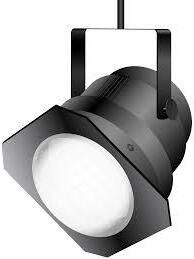


A native of Saint Louis, MO Tia Latimer, is the creator of Pretty Little Candle Co. Tia has always enjoyed the method of how candles worked and the amazing aroma they give off. She had a vision to design scented candles that were very creative and different from your traditional candle. Tia put her thought into action and that thought then became a reality when she launched PLCC. "I want people all over to know that it’s ok to be their true authentic and unique selves, regardless of others' opinions as to what they may think is normal. PLCC embodies the unique persona of boldness that I wish for everyone near and far to feel within themselves."

PLCC makes handmade Beverage, Food, Scented, & Themed candles.
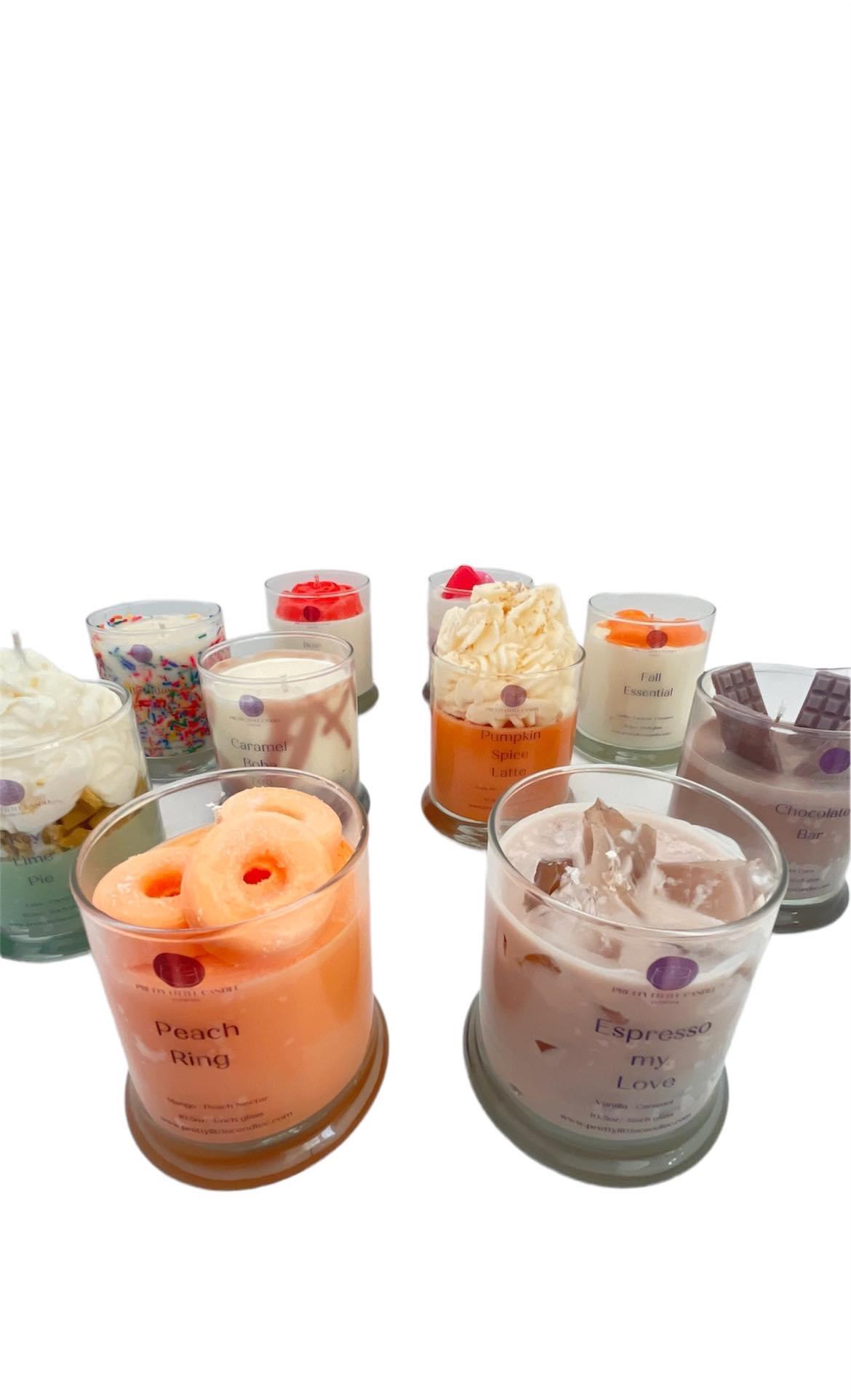



Pretty Little Candle Co. started as a vision
December 2021. In January 2022 our creator Tia Latimer started her strive for PLCC. The motto at Pretty Little Candle Co. is “Unique, Bold & Extravagant.”
“My uniqueness is because of my boldness, and my boldness is unique because of my extravagance"
-Tia Latimer
